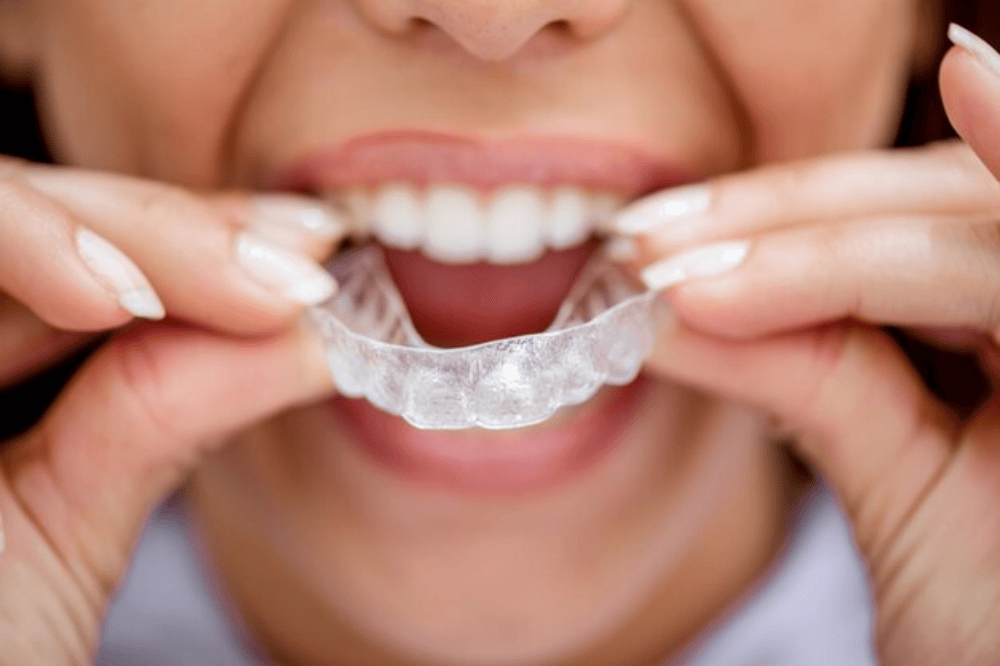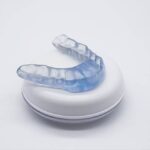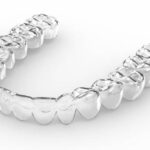Bruxism, commonly known as teeth grinding, is more than just an occasional nuisance—it can have lasting effects on oral health and overall well-being. Regardless of whether it happens at night or during the day, bruxism has adverse effects, including joint and muscle pain, cracked and broken teeth and even headaches.
Fortunately, proper tactics and the help of a dental professional can help manage bruxism.
This article will offer helpful tips and information for those seeking information related to the treatments for bruxism in Airdrie.
What is Bruxism? Why Should You Care?
Bruxism is an involuntary habit where the teeth are clenched or grind against each other during a day subconsciously. While some people experience it only at night (sleep bruxism), others may unconsciously clench their teeth during the day (awake bruxism).
Common Signs of Bruxism
The initial step towards treatment of bruxism is to identify the condition. Here are some telltale signs:
- Migraine or chronic headaches, with daily throbbing pain in the morning.
- Jaw pain or soreness.
- Teeth that appear flat, chipped, or excessively worn.
- Increased tooth sensitivity.
- Earaches without an infection.
If you have experienced these, or there is something similar in appearance, it is advised to visit a dentist in Airdrie for the right consultation and treatment.
Why Does Bruxism Happen?
The causes of bruxism are complex and multifaceted. While stress and anxiety are leading culprits, other contributing factors include:
- Misaligned teeth: Irregular bites can create additional pressure on specific teeth.
- Sleep disorders: Sleep apnea is a common condition related to bruxism.
- Lifestyle habits: Caffeine, alcohol and smoking increase the risk of teeth grinding.
Understanding the root of the bruxism is crucial; thus, seeking consultation from a dentist near you will help you develop an appropriate treatment plan.
Ways to Cope Up with Bruxism
There is no holistic approach to managing bruxism because this condition can manifest in various ways. Here are some expert-recommended strategies:
1. Custom-Made Night Guards
A custom-fitted night guard, crafted by a dentist in Airdrie, is one of the most effective tools for preventing teeth grinding during sleep. These devices act like a barrier between your upper and lower teeth and, therefore, help to reduce the risk of damage.
2. Stress Management Techniques
Stress is a significant trigger for bruxism. Consider incorporating relaxation practices such as:
- Yoga or meditation.
- Regular exercise.
- Breathing exercises before bed.
Reducing stress levels can significantly alleviate the frequency and intensity of bruxism episodes.
3. Botox for Bruxism
An innovative and increasingly popular solution, Botox for bruxism, involves injecting small amounts of Botox into the jaw muscles. This treatment reduces muscle contractions’ intensity, relieving jaw pain and minimizing grinding. Many patients in Airdrie have found this treatment highly effective, mainly when other methods haven’t worked.
4. Correcting Dental Issues
In some cases, misaligned teeth or improper bite alignment are the leading causes of bruxism. A dentist near you can address these issues with treatments such as orthodontics or dental crowns to ensure your teeth fit together correctly.
Lifestyle Changes to Reduce Bruxism
In addition to professional treatments, making small lifestyle changes can go a long way in managing bruxism.
1.Limit Caffeine and Alcohol
Both caffeine and alcohol can exacerbate teeth grinding, mainly when consumed close to bedtime. Opt for calming teas or water in the evening instead.
2. Practice Good Sleep Hygiene
A restful night’s sleep is essential for reducing bruxism. Try these tips:
- Stick to a consistent sleep schedule.
- Create a calming bedtime routine.
- Invest in a comfortable mattress and pillow.
3. Avoid Chewing Non-Food Items
Chewing on pens, pencils, or even gum can overstimulate your jaw muscles, increasing the likelihood of bruxism.
When to See a Dentist for Bruxism
While at-home strategies can help, persistent bruxism requires professional intervention. If you’re experiencing ongoing symptoms, consult an emergency dentist near you. Professional care ensures that potential complications, such as tooth fractures or gum recession, are addressed promptly. Contacting Kings Pointe Dental Centre would be the right choice to protect your teeth, relieve jaw pain, and enjoy a better quality of life.
How Kings Pointe Dental Centre Can Help
At Kings Pointe Dental Centre, we understand how bruxism can impact your daily life. Our experienced team, led by skilled dentists in Airdrie, offers comprehensive care tailored to your needs.
Whether you’re looking for Botox for bruxism, need advice on treatment options, or simply want to learn more, our dentist in Airdrie is here to support
- We offer advanced, patient-focused solutions for bruxism in Airdrie.
- Conveniently located, we’re the go-to dentist near you for all your dental needs.
- Our friendly team is dedicated to making your experience stress-free and comfortable.
Don’t let bruxism control your life. Contact us today to schedule a consultation and take the first step toward managing bruxism effectively.






